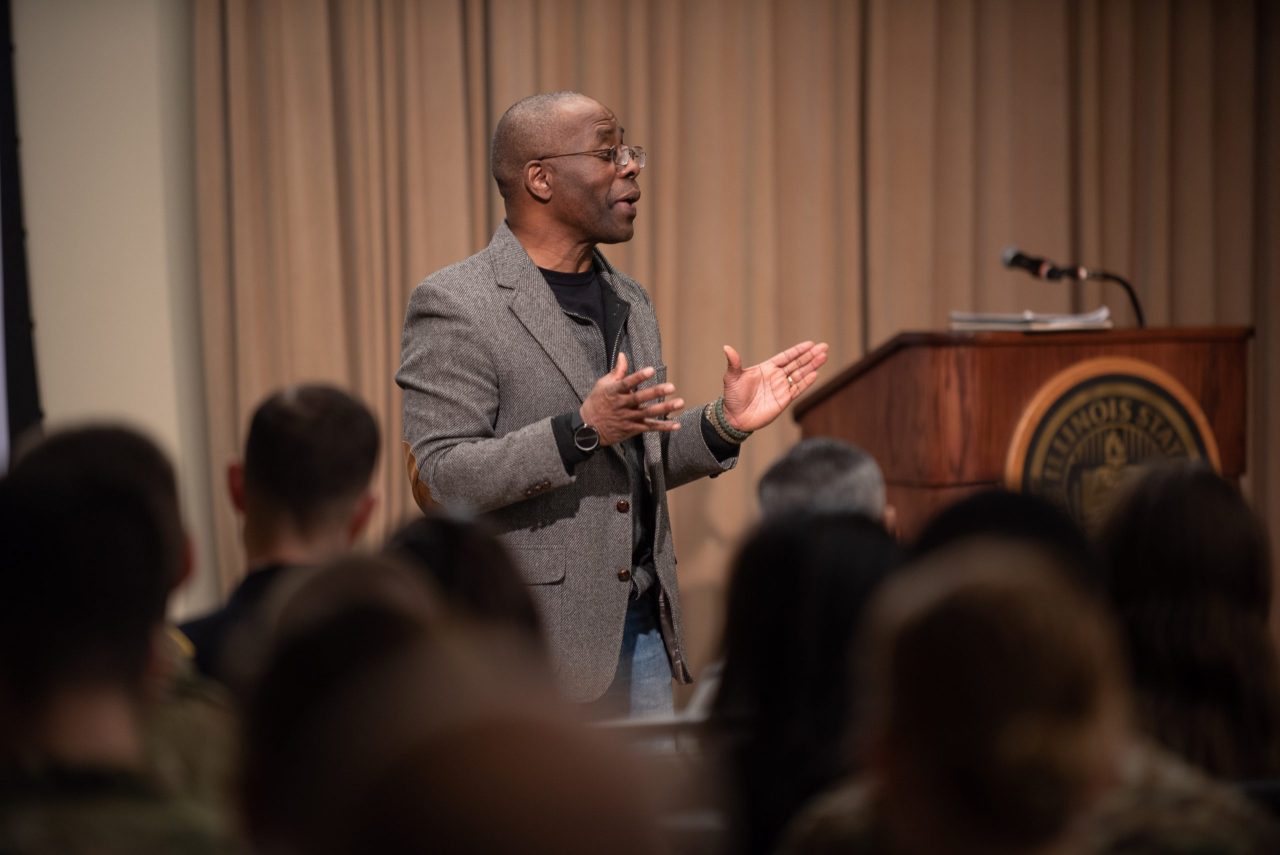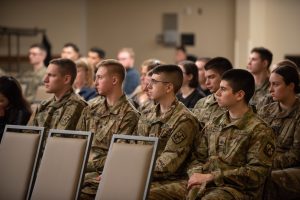Col. David Rabb ’83 has shared his wisdom around the world, and he was proud to bring his message to students and faculty at his alma mater.
“I’m grateful for this institution,” said Rabb, who majored in criminal justice sciences, served as president of the Black Student Union, was a member of the Academic Senate, and was an on-air personality at WZND during his time as a Redbird. “This institution gave me the opportunity to grow, and I know it’s going to give you the same opportunities.”
On February 21, Rabb engaged a crowd of about 60 people in the Circus Room of the Bone Student Center for an hourlong speech titled “Reach, Change, and Grow.” The event was sponsored by Veterans and Military Services and the Department of Military Science and was held in conjunction with the Military Ball.
Rabb has devoted 41 years of service to the United States military, serving with the Marines and the Army. Additionally, he devoted 34 years of service to the Department of Veterans Affairs as a social worker. Now semiretired, he has written a children’s book, was featured on Matt Mitchell’s 100 Faces of War project, and serves on the board of directors for Paws for Purple Hearts and PsychArmor.
Rabb’s decorated resume may be inspirational, but it hasn’t come without hardship.
Throughout his presentation, Rabb talked about the mental toll caused by combat as well as the breakthroughs that are being made to help those affected. He introduced the audience to the concept of “moral injury,” which he described as an “invisible wound to the soul,” often as a result of being required to go against one’s moral or ethical values. Rabb convinced the Veterans Administration and the Department of Defense to formally recognize moral injury as a disability.
In the middle of his presentation, Rabb asked the audience to step into his shoes. “One of the reasons I have a moral injury is because I had to make a decision,” said Rabb. “A critical decision.”
He set the scene. It was 2004 in Iraq. He was a major at the time and was providing counseling and stress management to his soldiers. A commander ordered Rabb to move his soldiers to where the battle was intensifying. Rabb’s instinct was to refuse to place his soldiers in harm’s way, but he was legally obligated to follow orders. Ultimately, he chose to follow the order.
After recounting the scenario, Rabb asked the audience what they would do in his predicament. There was a moment of silence until a few members of the crowd chimed in to say that they would have also followed the chain of command.
“Leadership is about thinking,” said Rabb. “But it’s also about doing.”
Rabb embraces being a natural-born leader. He eagerly shared his “G.R.O.W” philosophy with the crowd: “G” stands for setting goals, “R” for reaching out, “O” for seeking opportunities, and “W” for putting in the work. He also stressed the importance of having a healthy work-life balance and made sure to use his platform to uplift those who may be facing their own struggles.
“There’s nothing wrong with struggling,” said Rabb. “We all struggle in our own way, and that’s OK.
“If you’re not struggling, what are you doing?”


